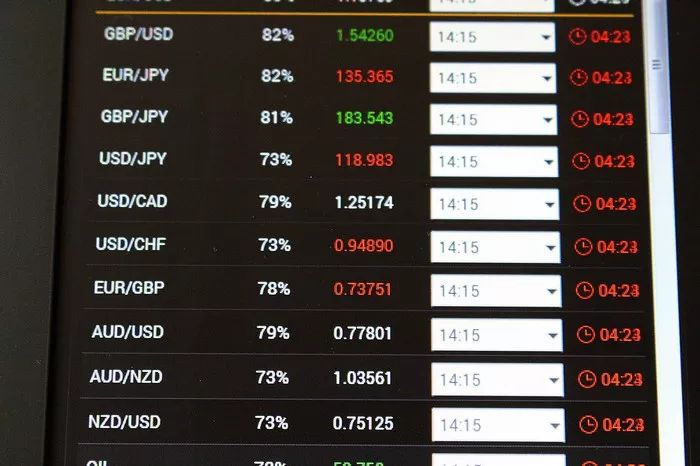Exchanging dollars in Buenos Aires can be a nuanced process due to the economic environment and the fluctuating exchange rates. Knowing the best places to exchange your currency ensures you get the best value for your money. This article highlights five reliable places to exchange dollars in Buenos Aires, providing insights into their advantages, disadvantages, and other pertinent details.
1. Banks
Major Banks
Major banks in Buenos Aires, such as Banco de la Nación Argentina, Banco Galicia, and Banco Santander, offer currency exchange services. These banks are reliable and operate under strict regulations, ensuring that the exchange process is safe and transparent.
Advantages:
Security: Banks offer secure and legitimate currency exchange services.
Transparency: Banks provide clear and official exchange rates with minimal risk of scams.
Convenience: Many branches are located throughout the city, especially in central areas.
Disadvantages:
Exchange Rates: Banks often provide less favorable exchange rates compared to other options.
Paperwork: The process might involve more paperwork and identification requirements.
Operating Hours: Banks have limited operating hours, usually from 10 AM to 3 PM on weekdays.
Tips for Exchanging at Banks
Plan Ahead: Ensure you visit during operating hours and bring the necessary identification.
Compare Rates: Check the exchange rates offered by different banks to get the best deal.
Be Prepared for Queues: Banks can be busy, so be prepared for potential waiting times.
See Also: 6 Cheapest Currencies Compared To The US Dollar
2. Official Exchange Houses (Casas de Cambio)
Reputable Casas de Cambio
Official exchange houses, known as casas de cambio, are scattered throughout Buenos Aires. Reputable ones include Cambio Alpe, Cambio Paris, and Cambio Puente. These establishments are licensed and regulated, offering a secure way to exchange currency.
Advantages:
Competitive Rates: Casas de cambio often offer better exchange rates than banks.
Efficiency: The exchange process is typically quicker and involves less paperwork.
Locations: These are usually conveniently located in commercial and tourist areas.
Disadvantages:
Variation in Rates: Rates can vary significantly between different exchange houses.
Identification Required: You still need to provide identification, though the process is generally smoother than at banks.
Risk of Counterfeit Bills: Although regulated, there is still a risk of counterfeit bills in less reputable casas de cambio.
Tips for Exchanging at Casas de Cambio
Research: Look up reviews and ratings of the exchange houses to ensure they are reputable.
Negotiate Rates: Some casas de cambio may allow for negotiation, especially for larger amounts.
Stay Alert: Be vigilant and count your money carefully before leaving.
3. Western Union and Similar Services
Western Union Locations
Western Union and other money transfer services like Xoom and MoneyGram offer currency exchange services. These are popular among tourists and expatriates due to their widespread presence and reliable service.
Advantages:
Widespread Availability: Numerous locations throughout the city, including in tourist areas.
Reliability: Established and trustworthy services with a reputation for security.
Speed: Transactions are usually processed quickly.
Disadvantages:
Exchange Rates: These services may charge higher fees and offer less competitive rates.
Transaction Fees: Additional fees might apply, making it more expensive overall.
Identification Needed: Like other options, identification is required.
Tips for Using Western Union
Compare Fees: Check the total cost, including exchange rates and transaction fees, before proceeding.
Use Authorized Locations: Only use official Western Union locations to avoid scams.
Consider Online Options: Some services offer better rates and lower fees for online transactions.
4. ATMs
Using ATMs for Currency Exchange
ATMs are a convenient option for exchanging dollars to Argentine pesos. Major banks’ ATMs, such as those from Banco de la Nación, Banco Galicia, and HSBC, allow you to withdraw pesos directly from your foreign bank account.
Advantages:
Convenience: ATMs are widely available and accessible 24/7.
Safety: Transactions are secure and handled by your bank.
No Need for Cash: You don’t need to carry large amounts of cash, reducing the risk of loss or theft.
Disadvantages:
Fees: ATM withdrawals may incur high fees, both from your home bank and the local bank.
Exchange Rates: The exchange rate might not be as favorable as other methods.
Withdrawal Limits: There are often limits on the amount you can withdraw per transaction.
Tips for Using ATMs
Check Fees: Before traveling, check with your bank regarding international withdrawal fees.
Use Major Bank ATMs: Use ATMs from reputable banks to ensure security.
Consider Multiple Withdrawals: If you need a large amount, consider making multiple smaller withdrawals to avoid hitting the limit.
5. Blue Market (Cueva)
Understanding the Blue Market
The blue market, or cueva, refers to the unofficial currency exchange market in Argentina. It offers significantly better exchange rates than official channels but comes with higher risks. These transactions are conducted by street exchangers or in unofficial exchange offices.
Advantages:
Favorable Rates: The blue market typically offers the best exchange rates, often much higher than official rates.
No Paperwork: Transactions are quick and require no identification.
Disadvantages:
Legal Risks: Exchanging money on the blue market is illegal and can lead to fines or other legal issues.
Safety Concerns: There is a higher risk of scams, counterfeit bills, and theft.
Lack of Recourse: If you encounter issues, there is no official recourse available.
Tips for the Blue Market
Caution: Only consider the blue market if you are familiar with the risks and have reliable contacts.
Small Amounts: Exchange smaller amounts to minimize potential losses.
Check Bills: Inspect the bills carefully to ensure they are not counterfeit.
Conclusion
When exchanging dollars in Buenos Aires, it’s crucial to consider safety, convenience, and the exchange rate. Banks and casas de cambio offer secure and regulated services, while Western Union provides widespread availability. ATMs offer convenience but may come with higher fees. The blue market provides the best rates but involves significant risks. By understanding these options and following the provided tips, you can make an informed decision and get the most value for your money while staying safe and compliant with local regulations.
Related topics:






























